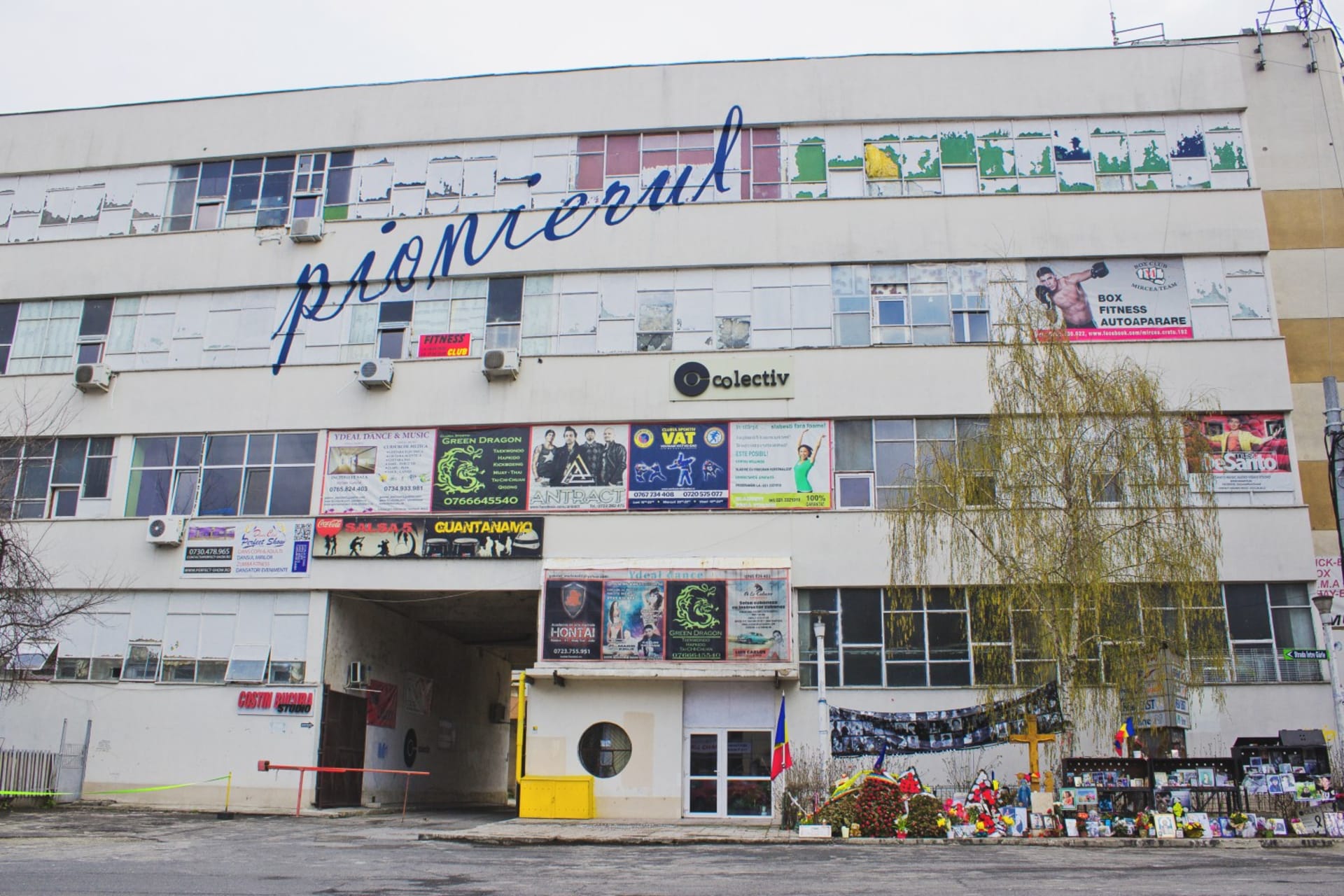
After The Fire: How The Colectiv Tragedy Changed Bucharest
In late October 2015, Irina Bako and Stefan Maritiu printed out the first batch of custom stickers advertising the inaugural edition of their festival, Interval. The adhesive flyers explained the premise and location—“100 hours in Bucharest” featuring dozens of international headliners like Nina Kraviz and Marcel Dettmann—along with the optimistic legend “What could possibly go wrong?” That weekend, on October 30, just four weeks before Interval’s opening night, the local venue Colectiv caught fire during a free concert and killed at least 26 people within 2.5 minutes. As of March 14 the death toll from the tragedy had reached 64, the government had toppled and most of Bucharest’s nightlife venues were closed.
Fireworks lit onstage around or before 11 p.m. sparked flames on foam pads hanging from pillars in the mezzanine, which in turn set the rafters and ceiling ablaze. The fire spread within seconds due to what was later found to be flammable soundproofing and improperly installed ventilation, and the crowd stampeded toward the building’s only two exits—one of which was blocked at first—to escape the noxious smoke, flames and globs of melted foam falling from the ceiling. Irina and Stefan spent a day the next week cruising Bucharest’s Calea Victoriei boulevard in order to remove their stickers.
The episode rocked Romania and razed its blossoming music and club scene, which was gaining recognition as an international party destination thanks in no small part to its minimal tech-house and after-hours scene. Despite the constituents’ very meticulous efforts to avoid press (including our attempts to include SNRS representatives in this piece) and hunker down in provicial obscurity in order to remain “underground,” Romanian DJs like the [a:rpia:r] trio have become the flag bearers for the country’s biggest cultural export and attraction for tourists in search of the longest and trippiest parties east of Berlin.
But the burgeoning scene suffered serious blows after the fire, as numerous restaurants, theaters and nightlife spots shut down temporarily or for good when parliament passed new safety regulations. There was a scramble for each place to make sure it was safe under the new laws, which forbade small venues to operate unlicensed and enforced regulations about how many exit they must to accommodate different-sized crowds. The only clubs to remain open in November 2015 were Eden and Control, the former of which partied undeterred throughout the night of October 30 and then continued to host gigs, which was allegedly an illegal maneuver. So as uncoordinated and unprepared emergency services struggled to save lives at the site of the country’s biggest tragedy in the last 20 years, its most renowned minimal tech-house marathon SNRS48 raged on until the following evening, when it closed early out of respect for the victims.
The fire at Colectiv transformed not only Bucharest nightlife, but Romania at large. The country was already in perilous condition thanks to decades under the violent dictatorship of Nicolae Ceausescu and a rampantly corrupt government that replaced Communism in 1989. In the week following the fire, thousands gathered in Bucharest’s streets to protest the government’s failure to enforce its safety regulations in one of the biggest demonstrations since the revolution that deposed Caecescu. These too took down the government; Prime Minister Victor Ponta, Interior Minister Gabriel Oprea and the mayor of the district that housed Colectiv, Cristian Popescu, all stepped down on November 4 in response to protestors’ demands for their resignations.
Conspiracy theories that the fire was planned in order to stage a coup spread quickly throughout social media. Ponta’s administration was already skating thin ice with its mistrustful populace, as corruption is a known epidemic on all levels of Romanian governance. Ponta and Oprea were both investigated for separate scandals in the months and days leading up the fire at Colectiv, which became the straw that broke the camel’s back. Protestors decried the Inspectorate For Emergency Situations (ISU)’s established practice of accepting bribes in exchange for permits. Colectiv was allowed to operate without a license thanks to a law that allows venues with a capacity of 80 people to open without documentation, but like many venues it regularly hosted more bodies than it was legally allowed; there were an estimated 300-500 inside on the night of the fire.
The locals interviewed below—the booker at Control and three Bucharest promoters—describe how the city’s once-blossoming scene has shrunk in the wake of the fire and the entirely new set of laws and circumstances facing Romanian entertainment business owners and audiences. Although their livelihoods have been transformed by the new legislation—at least for now, as Interval Festival reports that the parliament recently undid every new law that was passed after the fire—the freedoms allowed to entrants to Bucharest nightclubs remain untouched, save for a new ban on smoking in all indoor public spaces that was introduced in March and passed in December. Nevertheless, it does seem odd for demonstrators to demand more regulations when people usually protest for greater freedoms. Nightlife is often conceived of as a recess from the legal management of all facets of life—but how are clubbers supposed to feel free in a space where they know they aren’t even safe?
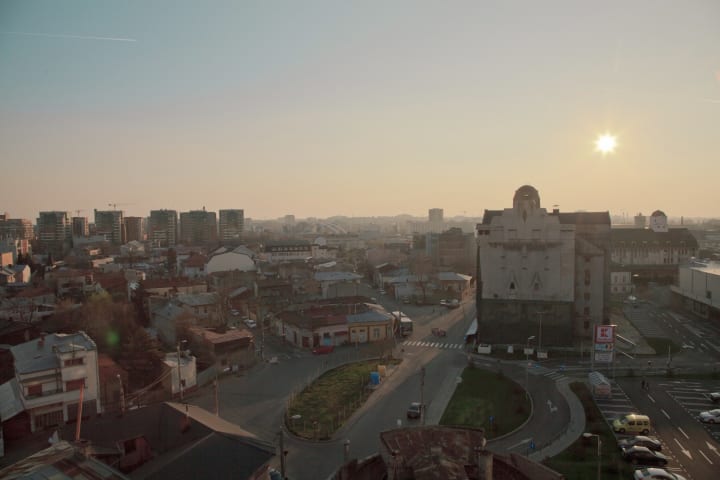
Control, a club located under a charming bistro in an old ballroom, has built an international reputation as Bucharest’s premiere underground music venue thanks to its consistent bookings and professional approach. Its reliability and polished setup made it virtually the only legal option for promoters forced to move their events from unsafe venues after the fire, and the influx added new pressure to the space.
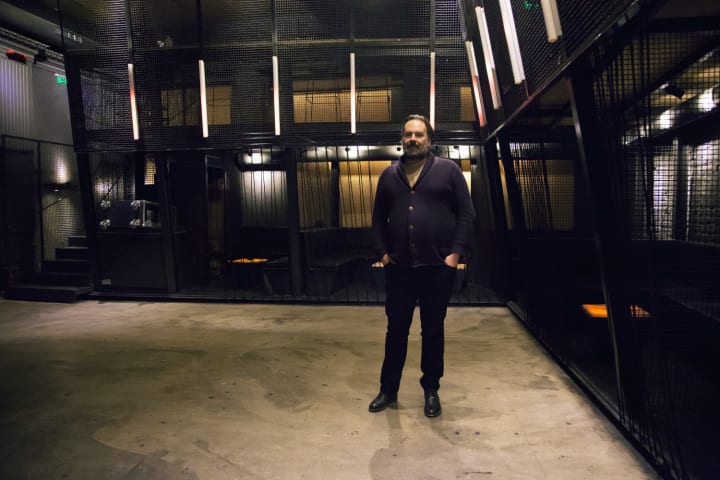
Control booker and co-owner Florin Oslobanu discusses the maelstrom of bureaucracy that ambushed nightlife spaces after the fire.
I opened Control with one other owner in 2008. At that time, it was mostly an indie/alternative rock and post-punk club in an underground venue not far from here, and we moved into our current location in 2011. There are three co-owners for this space, and we were lucky that it has been a restaurant since the beginning of the 20th century. It was called Berlin in the 1960s, and after the revolution in 1989 it was a casino for a few years, and then was closed for a while until we started renting it. Before that, in the 1940s, it was a ballroom. It’s easier to function within the new regulations if you don’t change the activities of a place. There are more problems for locations that change their activities—for instance, industrial spaces that are turned into clubs or something like that. All or most of those spaces temporarily closed after Colectiv.
Still, we changed everything about this place when we moved here—not structurally, but we installed pipes and things, and now it looks almost completely different. We also changed the bookings, so now Control is mostly a live venue that also books alternative electronic music. Almost every day, we have concerts that begin at 8 or 9 o’clock and then we usually have an electronic music party after.
I take care of the schedule and marketing here, while my partner takes care of administrative business. I’m trying to program as much as I can, but right now we’re booked until June because many other venues closed after the fire and promoters who were having parties and bands that were supposed to play in different places wanted to come here instead. That’s put a lot of pressure on scheduling and on me personally, because I have to move things around and choose the best option. I feel somehow overbooked because I don’t have the space to do every event that I want to do—I say, “Well, I would like for this DJ or band to come, but I don’t have a place for them.”
Most of the clubs in Bucharest are spaces available for people to rent out for individual events, but we are a regular club with our own identity and a certain niche. We’re interested in the alternative areas of all kinds of music. We don’t book very big or commercial DJs, and we don’t just rent the place out to a promoter who does whatever he wants here. I always ask, “What are you doing? What DJ is coming?” If we don’t like the DJ or we don’t think they fit with the club, we don’t accept the event. Other clubs are dependent on the events they book to draw their crowd, but many people come here because they want to come to Control—not because they want to see a particular event. We get 400 or 500 people here on weekend nights who come even if they don’t know what’s happening; they find out at the door who’s on that night.
After the fire we needed 23 different approvals from different institutions to get a new license under the new regulations.
But for a few months after the fire it was very difficult for us. The regulations were totally unclear, so we didn’t know exactly what to do. The day after Colectiv, we didn’t know if we were okay or not, or how we were okay and what ways we had to change. We had to talk to some independent experts to understand the regulations. They told us that we only had to make some small changes and add some things, like the netting by the ceiling. When we knew we were okay legally and could function without problems, we reopened the club.
But it was very difficult because people were afraid to come to the club for at least two or three weeks after the fire, especially to gigs and concerts. The kind of public we have here is almost the same type of crowd that went to Colectiv, and people were unwilling to do anything anymore. We decided that someone has to keep going. Almost all the clubs in Bucharest closed, and we were one of two or three that remained open. This was the only alternative electronic music club that remained open. I was here almost every night talking to people who were scared about something happening and telling them that it’s okay.
Throughout November it was almost a nightmare, because we had an inspection from different authorities almost every other day. Before the fire we had to renew our licenses every year and get authorization for everything from the food safety laws for the restaurant to work safety permits for employees. After the fire we needed 23 different approvals from different institutions to get a new license under the new regulations. We had six or seven visits from the fire regulation authority and the ISU in the first two weeks. It was a hurricane. They showed up unannounced just before parties were about to start, especially on weekends, until sometime in January. But they couldn’t find anything wrong, so then it slowed down because they knew we were okay, and of course we had to continue. However, attendance was lower than normal until January or so.
I think the most important issue is that the law has to change and become more clear and balanced. It’s very important to us that the regulations are clear and that they make sure people are safe without being exaggerated. There are big places that can fit 1,000 people but now are only allowed to host 200 people. I also don’t know who has the money to open new places in Bucharest right now that are okay musically and under the regulations, because it’s very difficult to have the kind of security we have here in a small underground place like the one where Control was located before.
Right before Colectiv, we were supposed to start another place, but we had to give up because it also had an underground area, and it’s very difficult to obtain authorization for that kind of club until you put a lot of money into renovating it. Almost all the clubs in Bucharest in the ‘90s were underground and for sure they would not have passed today’s regulations, but back then I didn’t feel unsafe there. Now when I think back on it, I have a different perspective. But nobody thought about it then.
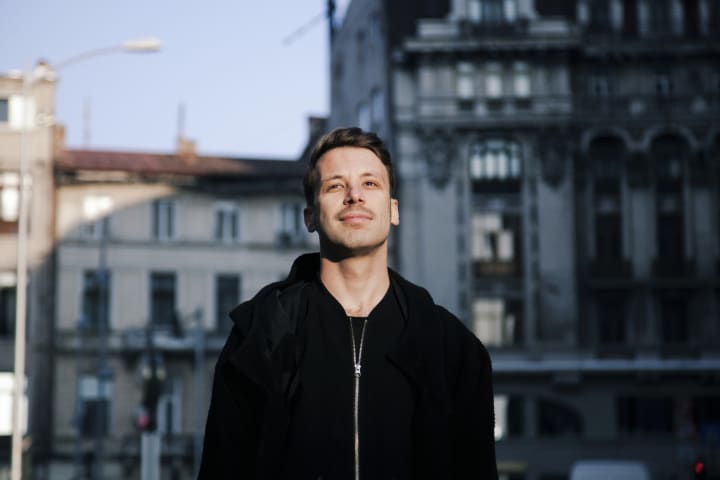
Rokolectiv founder Cosmin Tapu describes how the local scene has shrunk in the wake of the fire and how the new laws altered his vision for the eleventh edition of his festival, which brings artists like Lena Willikens, Borusiade and KABLAM to Bucharest this April.
Over the last ten years we’ve used many different venues. We’ve always tried to avoid placing Rokolectiv in regular clubs, so we organized our events in places like a former Communist students’ house, an old theater from the 1930s, a former prison and the Contemporary Art Museum in the Palace of Parliament. The last two editions of the festival took place in a sort of warehouse called Halele Carol, which was associated with a cultural reconversion project related to Bucharest’s industrial heritage. Choosing a place that’s not a club is a strategic decision; since the festival only happens once a year, it should feel special. Also, non-club venues have their own historical and social context and urban mythology.
I remember that there was a lot of stress involved in organizing an event on the rooftop of the National Museum of Contemporary Art. Because it’s in the Palace of Parliament, we had to deal with two types of guards in that building: gendarmes were stationed at the main gate and the SPP [Romania’s Protection and Guard Service] scanned bags and pockets like in airports. Firemen also came every time to check that nothing was flammable and that everything was okay. And on top of that, we had like, 12 undercover cops there.
Although there’s a lot of work involved in throwing events in non-club venues, we prefer to do it that way because if we chose to do it at a commercial club, our crowd might not come due to the clubs’ reputations for a specific crowds or styles of music. In Bucharest, mainstream music is either tech-house or…how should I call it…“post-minimal house” stuff. That’s been big in Romania for ten years or so, and it never dies. It doesn’t evolve, either; it’s somehow stuck in its own bubble. Villalobos has a lot of “godsons” here—goddaughters are quite hard to find. But I can’t explain how, in the city with the fastest internet in Europe, 18- to 20-year-old kids are stuck in only one genre and listening to the same loop for 12 hours. For me, it’s not a very interesting scene, but I appreciate it for channeling so many energies in this city. As for Rokolectiv, we’re trying to keep our crowd more mixed, and likewise the festival has always had more diverse musical content.
Before the fire, I noticed more and more club tourists coming to Bucharest, but I think their number diminished considerably after the new regulations were put in place. Most of the partygoers came because they knew there was no closing hour for clubs here—there is officially, but unofficially there is not. I meet people in Berghain who, when I tell them I’m from Bucharest, say, “Ah, it’s a good scene there!” People have some sort of exotic perception about this city and its electronic music scene. Of course, club tourists are not as numerous as in Berlin, and they don’t make a big difference.
At the same time, I would say there’s one good side effect of the regulations: the agenda has become less hectic. There were too many events happening at the same time in Bucharest. At some point the scene was so spread out that you would have five parties taking place simultaneously at different non-club venues, plus the regular club nights. It was too much for the local audience, which is limited, and there aren’t that many tourists yet. Not to mention sometimes there’s a psychological effect that comes with the overload: when there are too many things on the table you don’t even feel like eating anymore.
Of course, the new regulations changed our original idea of not organizing Rokolectiv in a typical club, so the next Rokolectiv Festival will take place at Control and the Museum of Contemporary Art. We didn’t want to risk our events getting cancelled at the last minute, so in the months after the fire we didn’t even look at other options besides Control. Most of the other venues we worked with before didn’t have this special type of fire permit. They all need a paper issued by the authorities that says the space is suitable for public events up to a certain number of people, and the conditions to get this permit are very harsh and at times absurd, such as the provision that a venue must have four to six exits for a large-scale event. Before, there were ways to get around the legal number of people allowed in a venue.
The core problem with these new regulations is that there’s a gap between the demands of the authorities and the situation in real life. It’s like two different planets. The authorities are trying to solve everything with last-minute laws, but you cannot solve it all overnight with laws without serious collateral damage. For me it was very weird to see young people at the protests after the fire demanding more rules. It’s kind of strange because the club scene and alternative tourism in Bucharest benefitted from the liberal regulations.
The accident at Colectiv did not happen because safety regulations were too loose, or at least not only because of that; it happened because several very specific things came together at the same time. The foam on the walls was not fireproof and they used fireworks inside. Of course there was some corruption involved, but there’s no logical, immediate connection between corruption and the fire. Strangely enough, I think Berlin has more “unsafe” venues then Bucharest, and they’re still open. Two or three similar accidents happened in similar circumstances at nightclubs in Brazil and the States. You can catch fire in your own house.
Colectiv was an accident, and I don’t think the new regulations would have prevented the fire from happening. It’s common sense not to have flammable materials on the walls in a club or not to allow open fire and pyrotechnics inside. Of course, you have to have general rules, but maybe they should be a bit less general than the ones we have now and should be adapted to each context and venue. And I think you should trust the common sense of the partygoers, especially in Bucharest, where people don’t get wasted like they do elsewhere. You don’t see drunken people here—well, you see some, but it’s very moderate, somehow.
In terms of parties and live music, the authorities have no idea what’s happening and where. They also don’t understand that these kind of events can bring in tourism, as they don’t have any knowledge about how to create a smart city branding. They did something about fire safety in response to pressure from the public because they think they can earn more votes or sympathy. It’s totally ridiculous. Bucharest wants to run for the title of European Capital of Culture in 2021, and a lot of the strategy to get it is based on alternative venues and on using the city’s industrial heritage. But how one builds six extra exits in an industrial hall registered as cultural heritage beats me.
Rokolectiv 2016 takes place April 21-23.
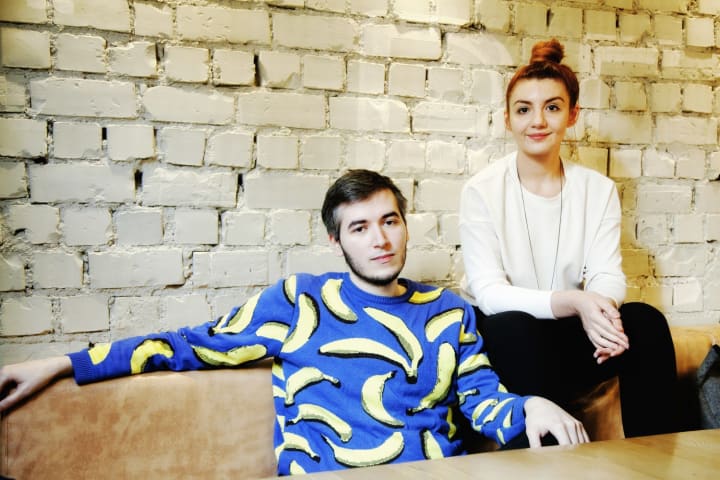
Interval Festival explains how they recovered from the irreparable damage the fire wrought on their plans to host a Dekmantel-like event in Bucharest and how they started working with the Romanian government to rewrite its fire safety legislation.
Irina Bako: The fire happened on October 30, and our event Interval began on November 27, so we had 27 days to completely reorganize our festival in totally different circumstances. We started planning the concept—a 100-hour party with acts we love from Europe mixed with Romanian artists—in March. We made this project thinking that it would be a win no matter what, but we never could have predicted something like that. When the fire happened we were on a wave of popularity; we had crazy press and we were about to announce our final and biggest wave of headliners and our partnership with a well-known music media outlet.
After the fire, everything we had built up fell before our eyes. We had to cut 50 percent of the lineup—35 artists—and in the end we lost a total of 85,000 euro. Our ticket sales plummeted. We lost the clubs that we were supposed to work with, Form and Guesthouse. We planned our event for around 2,500 people and ended up with one venue, Control Club, which can host up to 700 or 800. We had to give up on the biggest one, Form, because it wasn’t allowed to open after the fire, so we got two replacements: Eden and Control. But Form didn’t receive its new license by November 27, so we lost that one as well just one week before Interval started, and later Eden too. And on the day of the festival, the authorities shut down Guesthouse, so we were left with this one club, Control, and weren’t allowed to sell tickets at the door. But we didn’t lose hope and decided to go on.
Stefan Maritiu: Within three months after the fire, the structure of the ISU changed three times. In the week leading up to Interval, the leader of the ISU had a meeting with the owners of Guesthouse and told them it’s okay to host our party as long as we have an ambulance and a fire truck parked in front of the venue for the whole event. So we rented a fire truck and an ambulance, and then two days before the event, the new prime minister kicked out the boss of the ISU.
So the day our event was supposed to happen, the newly appointed leaders had a meeting with the guys from Guesthouse. They said, “Regardless of what you’ve been told by the previous guys, we’re not allowing you to do anything. If you start a party here tonight, we’re going to take away your license forever. We’re going to be there one hour before your event is scheduled to start and watch the door.” We talked to every promoter or club owner in town to find a replacement venue, but no one had the capacity, and nobody dared to host the party because it was too high exposure for them to risk anything. Control was a vital safety net for us, but it was unfortunately not a prime option due to its capacity and the limitations of its sound system.
IB: Three hours before the party was scheduled to start, the artists were pouring in and we didn’t even know if we were going to have a party. We tried to tell some of the artists that they weren’t supposed to come anymore and explain the new situation to those who had already arrived. Since we couldn’t sell tickets at the door on the first night, we couldn’t get any cash to pay the artists scheduled to play. And we couldn’t get any money out of the bar because the IRS (ANAF) would be on our heads as well. So we tried to talk to some of the artists that we were most comfortable with; a couple of them didn’t get paid on the spot, and they understood the situation.
SM: Nevertheless, we consider Interval to be a success in many ways. We were able to sell tickets at the door on the second day, and people queued for hours just to get in.

IB: We sold around 400 tickets to foreigners—Australians, French people, British people, Dutch people, people from Argentina. They had never been here before and experienced Bucharest firsthand through our festival. Nobody does that in Romania; nobody makes an event targeted to foreigners. But our secret reason behind doing Interval was to show Romanians how people party in Europe without them having to go to Panorama Bar or Concrete.
SM: Only a handful of local promoters would invite certain artists who are very popular internationally. For instance, there’s absolutely no demand or awareness for someone like Ben UFO or Jackmaster; they wouldn’t gather a crowd of 200 in Bucharest even if they were playing back-to-back. But on the bright side, Interval was born out of our desire to change that. Romanian DJs always play a big part in the dynamics and financial sustainability of events here, since their presence on the bill guarantees a crowd that would otherwise be pretty hard to draw in for an eclectic international lineup like the one that we put together.
IB: But we only have a remotely interesting scene here. It’s only interesting because it’s obscure and hard to get into. We’re trying to introduce some new international artists to the scene here, artists who would normally have just a few fans among the local heads. We were really inspired by Dekmantel Festival and how it’s about learning about music as well as a party.
SM: Romanians can make a fun crowd, especially when local artists are headlining. Bucharest was one of the best party scenes in the world before the accident, especially thanks to the huge after-hours scene. We used to have around 20 serious parties per week, and the ones happening on weekdays were growing increasingly popular. However, everything came to an abrupt stop after Colectiv and almost nothing happened for a month before Interval.
IB: Everyone got into an instant state of mourning. All the clubs were trying to hold it in for as long as they could, because obviously their business stopped. Every club owner knew they were now considered illegal somehow; nobody was completely proper besides Control. Everyone was trying to shut up and not do anything until this passed. But it didn’t, really.
SM: People were afraid of clubs, which was super ridiculous because nobody was patient enough to realize that the fire at Colectiv was a freak accident. Everyone was talking about conspiracies and how everything is unsafe and not that much about how it actually happened.
IB: Before the fire, you could pretty much run an event without any form of license, and it was really easy to get them. You’d get inspections, but most of the people in the ISU and the mayor’s office were people who worked in the government before 1989, so they were taught how to do their jobs under a different mentality and just wanted to make some extra money off of what they were doing. Basically, it worked like this: if you gave them money, however little, they’d make sure your papers were in order.
SM: I would just have to call the authorities and leave a voicemail, and since it’s recorded that I’m trying to get a license, that’s good enough for them—even if they never answer my call. After the accident, the ISU was going into clubs, checking out the obvious stuff, and then they’d say, “I’m just not feeling this. I wouldn’t let my kid come here, so I can’t sign this paper for you.”
IB: There’s such a huge thing with corruption in Romania. You can’t even describe it because it’s so embedded in our “national personality,” if you will. Everyone just knows that stuff works like that. Our generation is constantly amazed and just going, “What the fuck! What can we do about this?” Even if the protests that happened after the fire had great intentions, they were completely disorganized and nobody really knows if they caused the change or if it was really a political by the leaders of PSD [the Social Democratic party], who needed to disappear from the public eye for a while.
Most of my friends went to the protests and honestly believed in this beautifully idealistic cause that I support—but from afar. I knew that if I went, I’d be annoyed. There were like, five heads at some point who were leading random segments of the crowd into completely different directions. We knew the protests would change something, but we couldn’t see the extent of our involvement. So we didn’t go.
SM: In January we had a meeting with the newly appointed Minister of Social Dialogue alongside a few other major promoters, like SNRS/Sunwaves, The Mission and Color. The Minster of Social Dialogue was just becoming aware of the extent of the issues that the post-Colectiv movement generated. She said that her hands were tied. “You know how things are in Romania.” She told us that we should get an NGO going so that we could officially propose some new laws, so we did. Now this new promoters’ and event organizers’ association is scheduled to meet up with the new—and hopefully stable—ISU leaders and come up with proposals for a modern and functional set of safety rules for events and locations of all scales.
IB: So we read through many systems of how other governments approach club safety. We’ve started to model our proposal around the UK and the pre-lockout system in New South Wales, Australia. They have a handbook for promoters to evaluate their own event risks according to certain parameters. It’s basically public submission rather than the authorities having to come in and inspect your event when it happens. It creates a bigger sense of responsibility. We want to help make it easier for the authorities and promoters to actually communicate with each other.
SM: In this system you’re just supposed to be honest, and nobody was honest before. We want to enforce honesty from the promoters and the authorities. So if a promoter says he’s going to host 700 people, he’s going to get fined and be in deep trouble if he has 2,000 people attending.
IB: If you want to change things, you really have to do it and jump into politics. You can’t just show up and wave a little flag and think you did something. It doesn’t matter if you go out into the street. If you want to do something, you have to get involved.
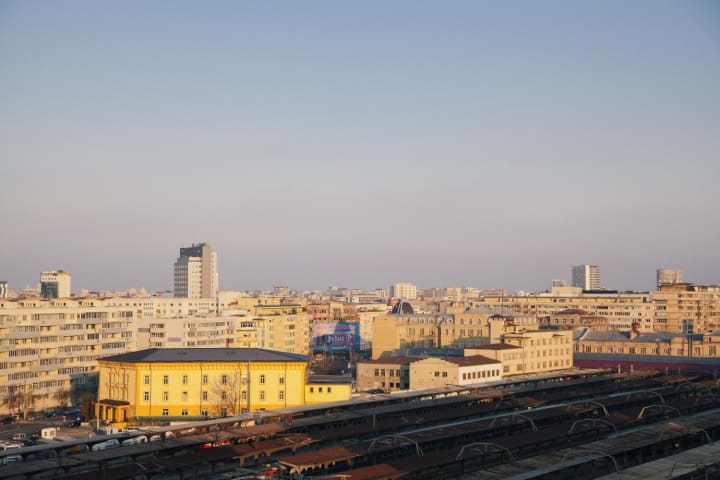
Published April 01, 2016.
